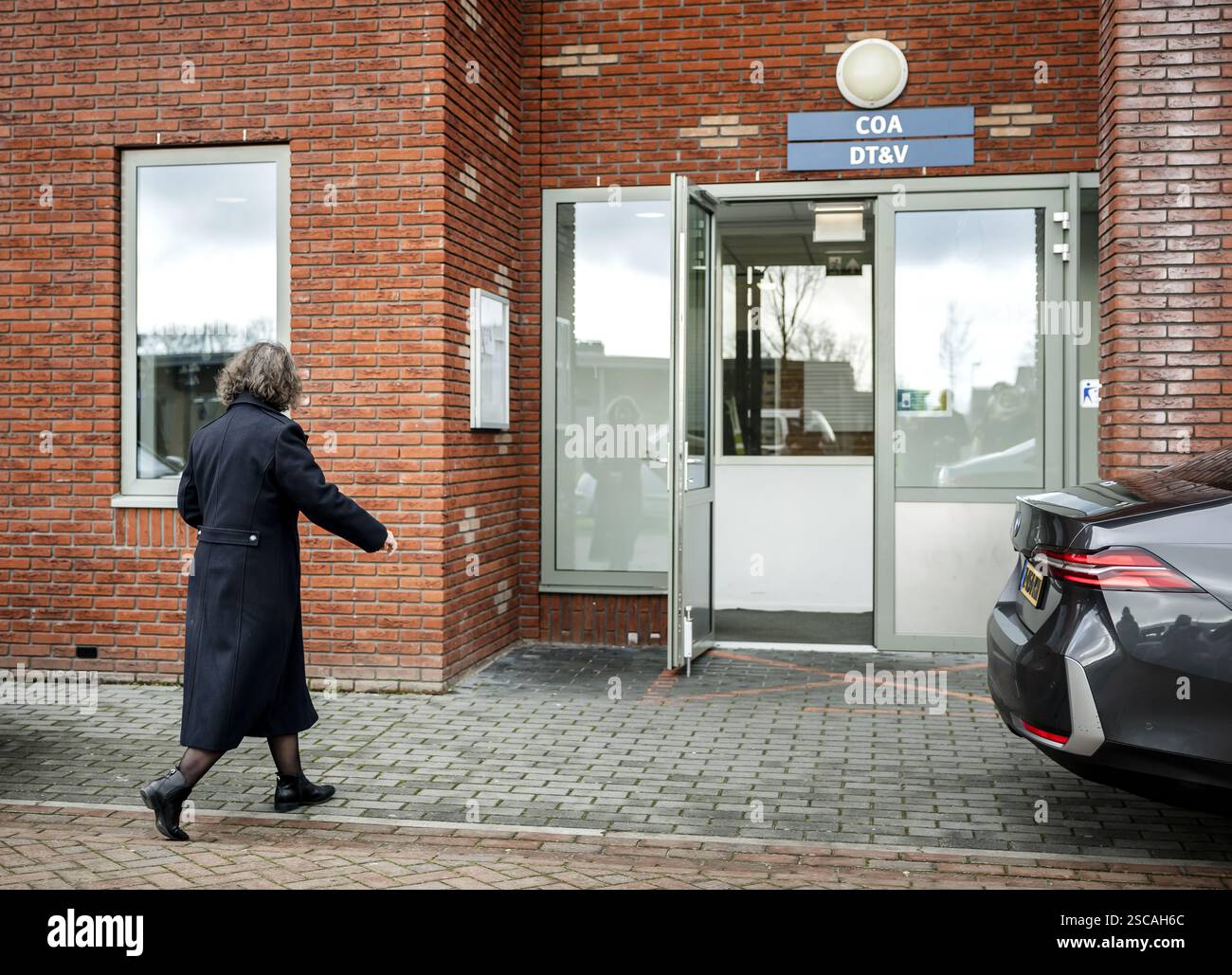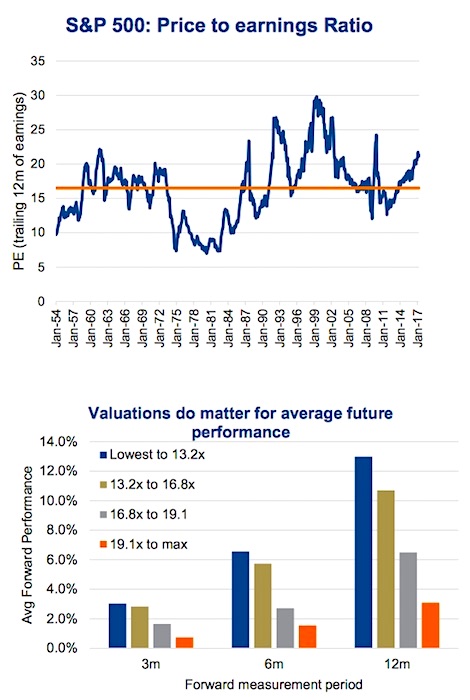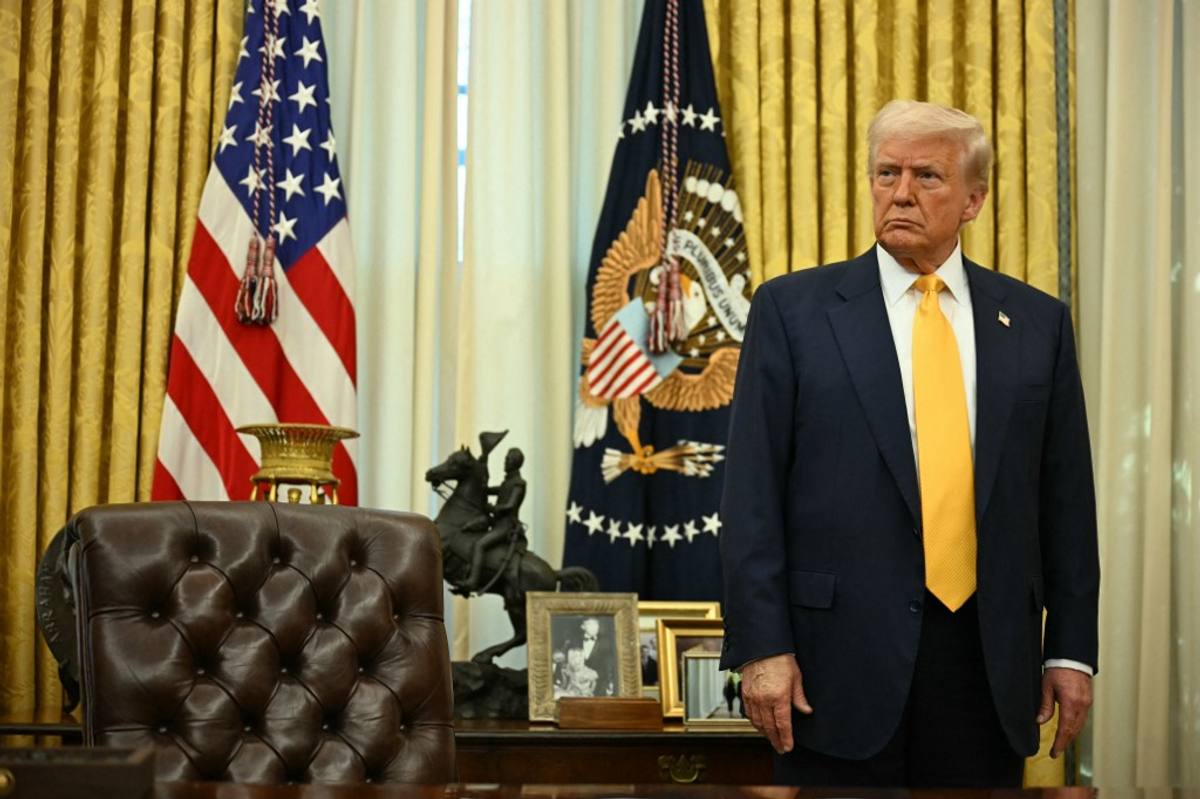Royal Honors Row: PVV Minister's Stand On Asylum Volunteers

Table of Contents
The PVV's Core Ideology and its Influence on Asylum Policy
The Party for Freedom (PVV), led by Geert Wilders, holds a staunchly anti-immigration platform. This core ideology significantly influences their approach to asylum policy and volunteer involvement. The PVV's beliefs can be summarized as follows:
- Emphasis on stricter border controls: The PVV advocates for significantly tighter border security to drastically reduce the number of asylum seekers entering the Netherlands.
- Reduction in asylum seeker numbers: A core tenet of their platform is a dramatic decrease in the number of asylum applications granted and a faster deportation process for those whose applications are rejected.
- Critical stance on immigration-related volunteer work: The PVV often views volunteer efforts supporting asylum seekers with suspicion, questioning their motives and potential impact on national security and social cohesion.
- Focus on national security and cultural preservation: The party prioritizes national security concerns and emphasizes the preservation of Dutch culture and identity, often framing immigration as a threat to these values.
These core beliefs directly inform the PVV Minister's negative view of asylum volunteers. Official PVV statements frequently highlight concerns about the potential for uncontrolled immigration and the perceived disruption of social order. The party often frames volunteer efforts as potentially undermining official processes and exacerbating existing tensions.
The Minister's Specific Arguments Against Asylum Volunteer Involvement
The Minister's criticisms of asylum volunteer involvement often center on several key arguments:
- Concerns about potential security risks: The PVV expresses concern that unregulated volunteer involvement could pose security risks, potentially facilitating illegal activities or enabling individuals with malicious intent to access vulnerable asylum seekers.
- Claims of undermining official processes: The party argues that volunteer initiatives might interfere with official procedures, creating confusion and inefficiency within the asylum application system.
- Allegations of biased support towards asylum seekers: The PVV sometimes suggests that volunteers exhibit bias towards asylum seekers, potentially influencing the objectivity of the asylum process.
- Arguments related to the costs and resource allocation: The party raises questions about the costs associated with supporting volunteer efforts, arguing that resources should be prioritized for official government programs.
However, counterarguments exist to each of these points. Many volunteer organizations operate with stringent vetting processes, ensuring the safety and security of those they assist. Furthermore, volunteer efforts often complement official services, providing crucial support where government resources may be insufficient. Independent studies could be conducted to quantitatively assess the real impact of volunteer work on asylum processes and resources.
The Impact of the PVV Minister's Stance on Asylum Volunteer Organizations
The PVV Minister's stance has tangible consequences for asylum volunteer organizations across the Netherlands:
- Challenges in fundraising and recruitment: Negative publicity and perceived government disapproval can make it harder for organizations to secure funding and attract new volunteers.
- Decreased volunteer participation: The controversial stance might discourage potential volunteers from participating, reducing the overall capacity of these vital support networks.
- Impact on the provision of crucial support services to asylum seekers: Reduced volunteer numbers directly impact the availability of essential services, such as language lessons, legal aid, and emotional support.
- Potential legal challenges and restrictions: The PVV's influence could lead to increased legal scrutiny and potentially restrictive regulations on volunteer activities.
The morale and motivation within volunteer organizations are undoubtedly affected. Many volunteers feel disheartened by the perceived lack of government support and the criticism directed towards their efforts. Interviews with representatives of these organizations reveal a deep sense of frustration and concern over the future of their work.
Public Opinion and Media Coverage of the Controversy
Public opinion on the PVV Minister's stance is sharply divided. Recent polling data suggests a range of perspectives, reflecting the complex and often emotional nature of the immigration debate. Media coverage has been extensive, with different outlets framing the issue from various angles, leading to a diverse range of public interpretations.
- Polling data illustrating public support or opposition: Surveys show significant variations in public opinion, depending on factors like political affiliation, age, and geographic location.
- Summary of media coverage and its framing of the issue: News reports and opinion pieces often present contrasting viewpoints, reflecting the deep divisions within Dutch society regarding immigration and asylum policy.
- Highlighting diverse opinions from different demographics: Analysis reveals notable differences in attitudes toward asylum volunteers among various demographic groups.
- The role of social media in shaping public perception: Social media platforms play a significant role in amplifying contrasting perspectives, contributing to the polarization of public opinion on this issue.
Conclusion
The PVV Minister's position on asylum volunteers is a complex and controversial issue with far-reaching implications. While the PVV highlights concerns regarding security and resource allocation, critics emphasize the vital role of volunteers in providing essential support to asylum seekers and complementing official government efforts. The controversy surrounding the Royal Honors Row highlights the deep divisions within Dutch society regarding immigration and the impact on both asylum seekers and volunteer organizations. The long-term consequences for Dutch immigration policy and the well-being of asylum seekers remain to be seen.
Further understanding of the PVV Minister's position on asylum volunteers and its implications requires continued engagement. Learn more about the Royal Honors Row controversy and participate in informed discussions about Dutch immigration policy and the vital role of asylum volunteers. Engage in respectful dialogue on this complex topic to advocate for fair and humane solutions for asylum seekers in the Netherlands.

Featured Posts
-
 Bof A Reassures Investors Why Current Stock Market Valuations Arent A Threat
May 11, 2025
Bof A Reassures Investors Why Current Stock Market Valuations Arent A Threat
May 11, 2025 -
 Woman Accuses Prince Andrew Claims Only Days To Live
May 11, 2025
Woman Accuses Prince Andrew Claims Only Days To Live
May 11, 2025 -
 Underrated Or Just Unpopular Examining The Commercial Underperformance Of The Ministry Of Ungentlemanly Warfare
May 11, 2025
Underrated Or Just Unpopular Examining The Commercial Underperformance Of The Ministry Of Ungentlemanly Warfare
May 11, 2025 -
 Movie Title Review Anthony Mackies Voice Acting In A Childrens Film
May 11, 2025
Movie Title Review Anthony Mackies Voice Acting In A Childrens Film
May 11, 2025 -
 Viyna V Ukrayini Dzhonson Zasudzhuye Propozitsiyu Trampa Pro Mirni Peregovori
May 11, 2025
Viyna V Ukrayini Dzhonson Zasudzhuye Propozitsiyu Trampa Pro Mirni Peregovori
May 11, 2025
